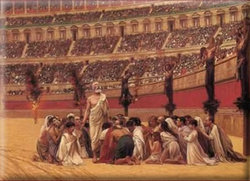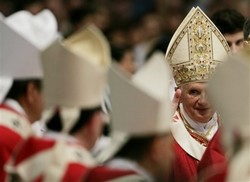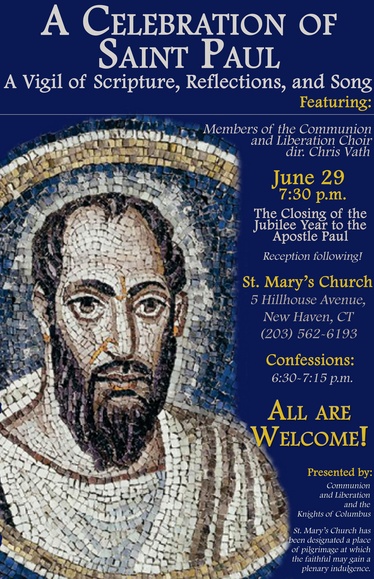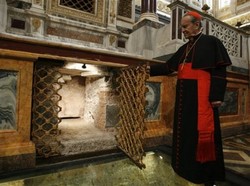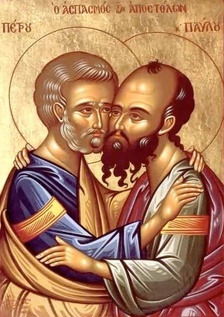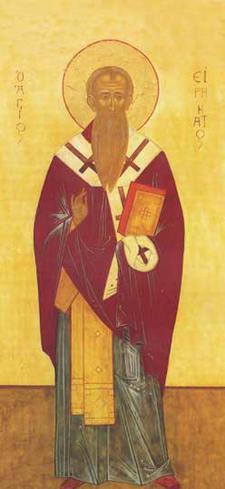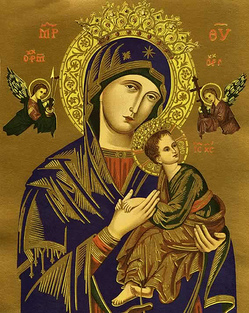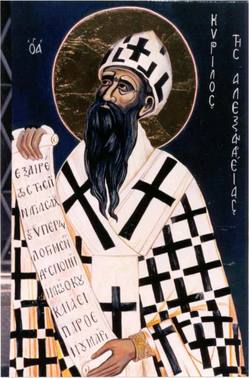Respect and love are essential in the work of ecumenical dialogue, the Pope
observed at a gathering of Orthodox leaders in Rome for the Solemnity of Saints
Peter and Paul. Each year the Patriarch sends a delegation to Rome for June
29th and the Pope reciprocates by sending a delegation to Constantinople for
the feast of Saint Andrew on November 30th to share in prayer, dialogue and
fraternity. Watch the video clip.
A hallmark of Pope Benedict’s petrine ministry is ecumenical
relations with other Christians, most particularly with the Orthodox churches. Yesterday
he said:
“You are welcome guests, dear brothers, who have been sent by His
Holiness the Ecumenical Patriarch, to whom I likewise send my warm and
fraternal greeting in the Lord. Let us give thanks together to the Lord for all
the fruits and benefits that the bimillennial celebration of the birth of St.
Paul has brought us. We celebrate together the feast of Sts. Peter and Paul,
the “protôthroni” of the Apostles, as they are invoked in the
Orthodox liturgical tradition, that is, those who occupy first place among the apostles
and are called “the teachers of the ecumene.”
With your presence,
which is a sign of ecclesial fraternity, you remind us of our common commitment
to the pursuit of full communion. You already know, but again today I have the
pleasure of confirming, that the Catholic Church intends to contribute in every
possible way to the reestablishment of full communion. This is in response to
Christ’s will for his disciples, and recalling Paul’s teaching in which he
reminds us that we have been called to “one hope.” In this respect, we
can confidently look forward to a good continuation of the work of the Mixed
International Commission for Theological Dialogue between the Orthodox and
Catholic Churches.
This commission will meet in October to address a crucial
theme for relations between East and West, namely, “the role of the Bishop
of Rome in the communion of the Church during the first millennium.” In
effect, the study of this aspect is clearly indispensable for generally getting
to the heart of the question in the current context of the pursuit of full
communion. This commission, which has already accomplished important work, will
be generously received by the Orthodox Church of Cyprus, to whom we express our
gratitude in advance, because fraternal hospitality and the climate of prayer
that will surround our discussions cannot but facilitate our common work and
reciprocal understanding.
I desire that the participants in the Catholic-Orthodox
dialogue know that my prayers will accompany them and that this dialogue has
the complete support of the Catholic Church. With my whole heart I hope that
the misunderstandings and the tensions between the Orthodox delegates during
the last plenary sessions of this commission be overcome in fraternal love, in
such a way that this dialogue be amply representative of the Orthodox.”
On a related note, I can’t help but draw our attention to
one of the ongoing works in the ecumenical movement today is the superb work of
Prior Enzo Bianchi of the Monastery of Bose (in Italy). His monastery has
sponsored a creative renewal in religious life for men and women, a vibrant
program for the intellect, an awareness of the arts, and real fraternity. Bose
is sponsoring the 17th International Ecumenical Conference on Orthodox
Spirituality this coming September 2009. The program is exciting; the theme is
the spiritual struggle looking keenly on the relation of spiritual struggle
with Christian unity in the contemporary world.
